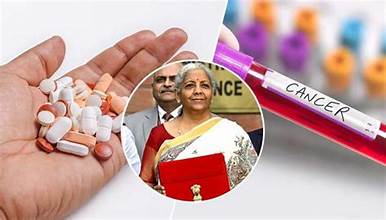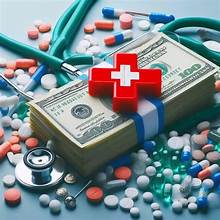In a major policy decision aimed at ensuring the availability of essential healthcare treatments, the government has extended the exemption on the import of anti-cancer, cardiac, and other life-saving drugs for another five years. This initiative is being welcomed by healthcare professionals, pharmaceutical importers, and especially patients, as it directly impacts the affordability and availability of critical medicines for the masses.
This extension is part of a broader health-focused strategy by the government to make life-saving medical treatments more accessible to those suffering from chronic and life-threatening conditions. It acknowledges the financial hardships faced by patients and their families in accessing imported medications, which are often prohibitively expensive without such tax or duty exemptions.

A Lifeline for Critical Care Patients
The exemption covers a wide range of drugs used in the treatment of cancer, heart diseases, organ transplants, and rare life-threatening conditions. These medications are often imported from countries with advanced pharmaceutical industries, and prior to exemptions, heavy import duties made them unaffordable for many in low- and middle-income households.
Cancer drugs, for instance, can cost tens of thousands of rupees per dose. Cardiac patients often require long-term treatment with high-cost medications, especially after surgeries or for managing chronic heart conditions. For many families, a prolonged illness meant a financial crisis. With the removal of import duties and taxes, these vital drugs will now be more affordable, ensuring that life-saving treatments do not remain out of reach due to financial constraints.
Economic Relief for Patients and Families
Extending this exemption has both economic and social implications. It significantly reduces out-of-pocket healthcare expenditure. According to recent health statistics, a substantial percentage of Pakistani households face catastrophic health expenditures, particularly in the treatment of chronic diseases. By continuing this exemption policy, the government is taking a proactive stance in alleviating the financial burden on the population.
The exemption also offers relief to public sector hospitals and charitable healthcare institutions that provide free or subsidized treatment. They often rely on imported drugs for the treatment of patients and can now serve a larger number of people with the same budgets.

Support from the Medical Community
Healthcare professionals and hospital administrators have applauded the move. Doctors treating cancer and heart diseases face a constant struggle between prescribing effective medication and considering a patient’s ability to afford them. This policy eases that burden and allows physicians to recommend the best possible treatments without the fear of financial inaccessibility.
Medical associations and advocacy groups have long lobbied for continued exemption, citing the need for uninterrupted access to critical medicines. With this extension, they believe continuity of care will improve, resulting in better patient outcomes and survival rates.
Pharmaceutical Sector Perspective
The local pharmaceutical industry, although growing, still does not produce many of the complex and advanced formulations required for critical illnesses. Importing such medications is often the only viable option. The exemption facilitates pharmaceutical importers to maintain stable supply chains and pricing models, especially for niche and orphan drugs that are not manufactured locally.
While some concerns persist about the long-term impact on local drug manufacturing, many experts argue that these exemptions are specifically for drugs that have no effective local substitute. Therefore, the policy does not undercut domestic production but instead fills essential gaps in the healthcare ecosystem.

Ensuring Transparency and Monitoring
With the continuation of this exemption, it becomes equally important to ensure transparency and regulatory oversight. The government must ensure that the benefit of tax-free imports is passed on to the patients and not exploited for excessive profit-making. Strict pricing regulations, regular audits, and public reporting of drug prices can help maintain the integrity of this policy.
In addition, there is a need to prevent misuse of this exemption, such as the import of non-essential or unregistered drugs under the guise of life-saving medication. Strengthening the regulatory framework and coordination with customs and health authorities will be crucial for the success of this initiative.
A Step Toward Universal Health Coverage
This policy decision reflects the government’s broader commitment to health equity and universal health coverage. It aligns with global goals set by the World Health Organization to ensure access to affordable and effective essential medicines for all.
By making life-saving drugs accessible, the government not only improves individual health outcomes but also enhances public trust in the healthcare system. It is a step forward in the long journey toward an inclusive and compassionate healthcare model where financial limitations do not determine one’s right to life and health.
Conclusion
The extension of the exemption on the import of anti-cancer, cardiac, and other life-saving drugs for five more years is a welcome relief for millions of patients and their families across the country. It reflects a strong commitment to public health, economic justice, and the right to medical care. With the right implementation, monitoring, and support, this policy has the potential to save countless lives and pave the way for a healthier future for all citizens.



